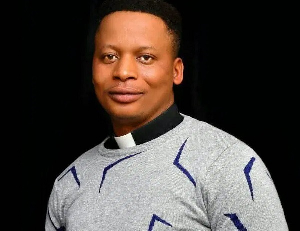General News of Friday, 15 February 2008
Source: GNA
NDC fans cannot disassociate themselves from PNDC era
Ho, Feb. 15, GNA - The economic, social and political developments that Ghana attained during the Provisional National Defence Council (PNDC) era were so monumental that no ardent supporter of the National Democratic Congress (NDC) would want to disassociate himself from those times, Mr Kofi Attor, NDC Director of International Relations said in Ho on Thursday.
He pointed out that notwithstanding the upsetting incidents and internal squabbles that created moments of national disquiet during the early days of that era, there was no doubt that the policies of the PNDC took Ghana out of the economic doldrums and also ushered the country into the path of political democracy. Mr Attor was speaking on the historical circumstances of the PNDC and the NDC and the social democratic philosophy of the NDC at a trainer of trainer's workshop on election monitoring for selected NDC executives from constituencies in the Volta Region. He said the two eras were inexplicably intertwined, as it was the PNDC, which after taking Ghana out of the woods, consulted and got the people's mandate to open up the country for political party activities.
Mr Attor said the PNDC later founded the NDC to contest and subsequently won the 1992 and 1996 elections on merit. He said the social democratic philosophy of the NDC would
ensure that the private sector thrived through functional policies
that put education, health, energy and transportation needs within
easy reach of the majority of the people. Mr Attor derided the property owning policy of the ruling New
Patriotic Party (NPP) as a medieval doctrine that pushes the needs
of the common man to the background. Mr Samuel Ampofo, NDC National Organizer, said participants
would be equipped to train others in their constituencies so that the
party could prevent cheating in the election process. He said it was expected that the NDC by the time of the election
would have at least five literate, well-trained and dedicated agents,
some as back-ups, to be posted to all the 24,000 polling stations in
the country. Mr Ampofo hinted that a task force for recruitment had been
set up to recruit only the best to serve as polling agents.












